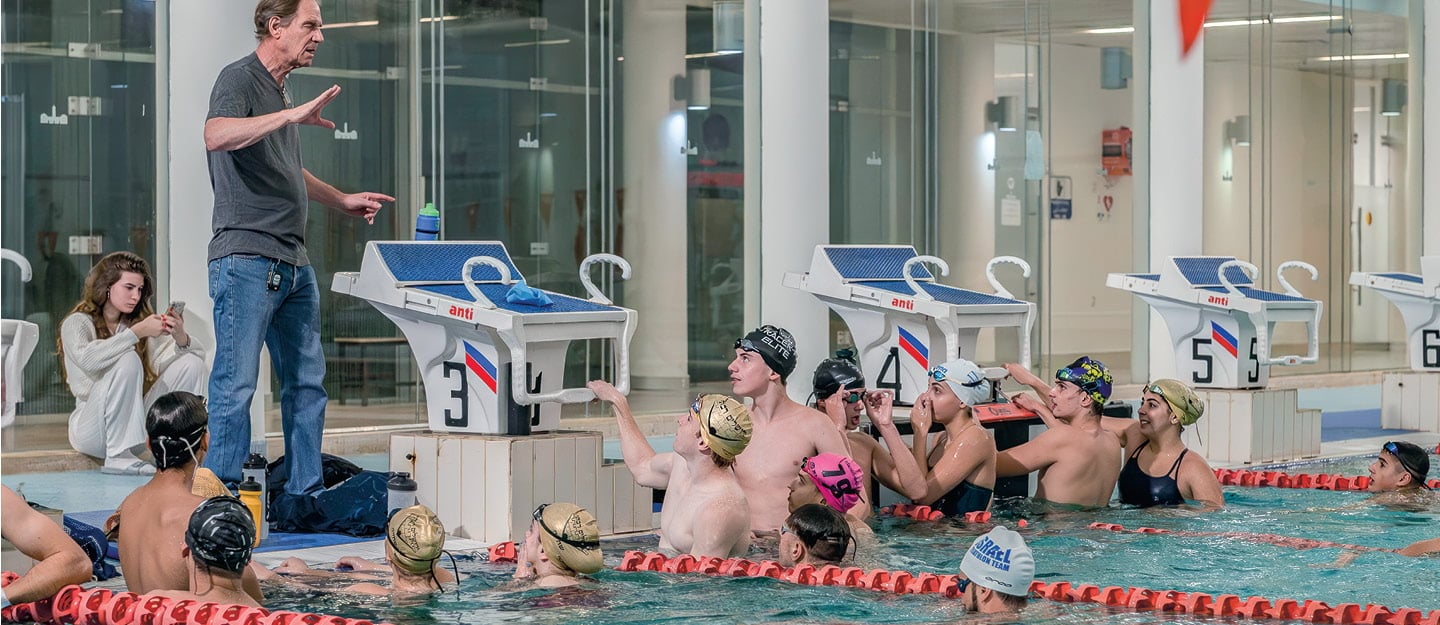No politics in the pool.
That’s always been the unspoken rule, and the Israeli and Palestinian teenagers in the Greater Jerusalem swim club have abided by it forever without even thinking.
The teens live on opposite sides of Jerusalem, coming together six afternoons a week to train at the Y.M.C.A. After two hours of laps, they plunge into a Jacuzzi, where they joke around for a few minutes before calling it a day.
For years, they’ve swum together, gone on beach outings together, barbecued together. The best Jewish swimmers represent Israel in international meets. The best Palestinian swimmers compete at meets in the Arab world.
“We don’t think about the team as Israelis and Palestinians,” says Avishag Ozeri, 16, an Israeli swimmer. “It is so normal to be together.”
No politics in the pool.
That’s always been the unspoken rule. The Israeli and Palestinian teenagers in the Greater Jerusalem swim club have abided by it forever without even thinking.
The teens live on opposite sides of Jerusalem. They come together six afternoons a week to train at the Y.M.C.A. After two hours of laps, they plunge into a Jacuzzi. They joke around for a few minutes before calling it a day.
For years, they’ve swum together. They have gone on beach outings together and barbecued together. The best Jewish swimmers represent Israel in international meets. The best Palestinian swimmers compete at meets in the Arab world.
“We don’t think about the team as Israelis and Palestinians,” says Avishag Ozeri, 16, an Israeli swimmer. “It is so normal to be together.”

